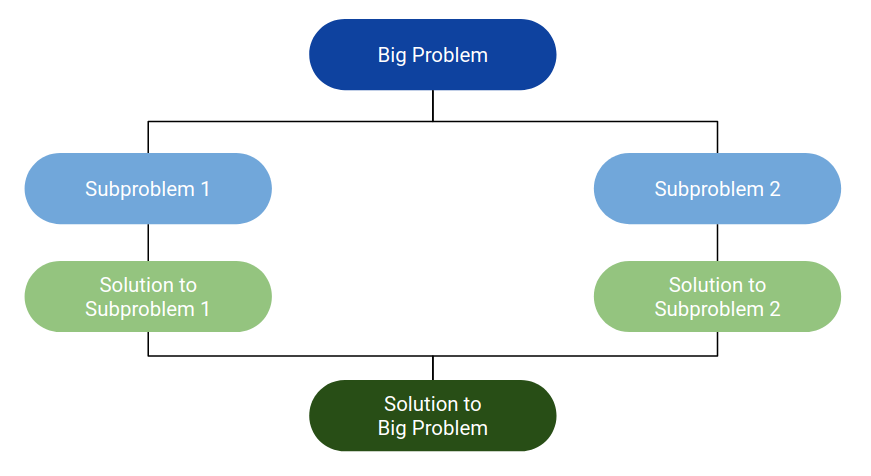# Master Theorem --- CS 137 // 2021-10-06 <!--=====================================================================--> ## Administrivia - You should have turned in: + You reflection for daily exercise 7 + Your solution for daily exercise 8 <!----------------------------------> # Exam 1 - Monday, October 11th <!----------------------------------> ## Exam 1 - **Format of the exam**: + Written, in-class, 75-minute exam + Closed textbook/notes/internet - <!-- .element: class="fragment"--> **Topics**: (Skiena Chapters 1-5) + Asymptotic notation, data structures, trees, hashtables, sorting, and divide and conquer - <!-- .element: class="fragment"--> Problems on exam will be directly taken or directly inspired from exercises at the end of each chapter <!--=====================================================================--> # Questions ## ...about anything? <!--=====================================================================--> # Daily Exercise 8 <!--=====================================================================--> # Divide and Conquer <!-- .slide: data-background="#004477" --> <!--=====================================================================--> ## Divide and Conquer  <!--=====================================================================--> ## Recurrence Relations - All divide and conquer algorithms have runtimes that are easiest to express with a recurrence relation + $T(n) = a\cdot T(\frac{n}{b}) + f(n)$ - <!-- .element: class="fragment"--> **Binary Search:** + $T(n) = T(\frac{n}{2}) + O(1)$ - <!-- .element: class="fragment"--> **Merge Sort:** + $T(n) = 2T(\frac{n}{2}) + O(n)$ - <!-- .element: class="fragment"--> **Make Heap:** + $T(n) = 2T(\frac{n}{2}) + O(\log n)$ <!--=====================================================================--> # Master Theorem <!-- .slide: data-background="#004477" --> <!--=====================================================================--> ## Master Theorem - If a divide and conquer algorithm's runtime is: + $T(n) = a\cdot T(\frac{n}{b}) + f(n)$ - Then we have three cases: 1. <!-- .element: class="fragment"--> If $f(n) = O(n^{\log_b(a-\epsilon)})$ for some $\epsilon > 0$ + Then $T(n) = \Theta(n^{\log_b a})$ 2. <!-- .element: class="fragment"--> If $f(n) = \Theta(n^{\log_b a})$ + Then $T(n) = \Theta(n^{\log_b a} \log n)$ 3. <!-- .element: class="fragment"--> If $f(n) = \Omega(n^{\log_b(a + \epsilon)})$ for some $\epsilon > 0$ + Then $T(n) = \Theta(f(n))$ <!--=====================================================================--> ## Case 1: Leaves Dominate - Suppose we have an algorithm that runs in: + $T(n) = 3\cdot T(\frac{n}{2}) + n$ --- - <!-- .element: class="fragment"--> Since $\log_2 3 = 1.585$, we have $f(n) = O(n^{\log_2 3})$ - <!-- .element: class="fragment"--> Thus, case 1 of the MT says that $T(n) = \Theta(n^{\log_2 3})$ <!----------------------------------> ## Case 1: Leaves Dominate $$T(n) = a\cdot T(\frac{n}{b}) + f(n)$$ --- - If we have: + $f(n) = O(n^{\log_b(a-\epsilon)})$ for some $\epsilon > 0$ - Then it means that $f(n)$ is small enough that the runtime is bounded by the number of leaves of the recursion tree <!--=====================================================================--> ## Case 2: Balanced - Suppose we have an algorithm that runs in: + $T(n) = 2\cdot T(\frac{n}{2}) + 2n$ --- - <!-- .element: class="fragment"--> Since $\log_2 2 = 1$, we have $f(n) = \Theta(n)$ - <!-- .element: class="fragment"--> Case 2 of the MT says that $T(n) = \Theta(n\log n)$ <!--=====================================================================--> ## Case 3: Root Dominates - Suppose we have an algorithm that runs in: + $T(n) = 2\cdot T(\frac{n}{2}) + n^2$ --- - <!-- .element: class="fragment"--> Since we have $f(n) = \Omega(n^{1+\epsilon})$ - <!-- .element: class="fragment"--> Case 3 of the MT says that $T(n) = \Theta(n^2)$ <!--=====================================================================--> ## Exercise 1 - Apply the master theorem to each of the following recurrences: - <!-- .element: class="fragment"--> $T(n) = 4T(\frac{n}{2}) + n^2$ - <!-- .element: class="fragment"--> $T(n) = 4T(\frac{n}{2}) + n$ - <!-- .element: class="fragment"--> $T(n) = 4T(\frac{n}{2}) + n^3$ - <!-- .element: class="fragment"--> $T(n) = T(n-1) + T(n-2) + 1$ <!--=====================================================================--> ## Exercise 2 - What of the master theorem do each of the following fall into? - <!-- .element: class="fragment"--> **Binary Search:** + $T(n) = T(\frac{n}{2}) + O(1)$ - <!-- .element: class="fragment"--> **Merge Sort:** + $T(n) = 2T(\frac{n}{2}) + O(n)$ - <!-- .element: class="fragment"--> **Make Heap:** + $T(n) = 2T(\frac{n}{2}) + O(\log n)$ <!--=====================================================================--> # Exam Practice <!-- .slide: data-background="#004477" -->